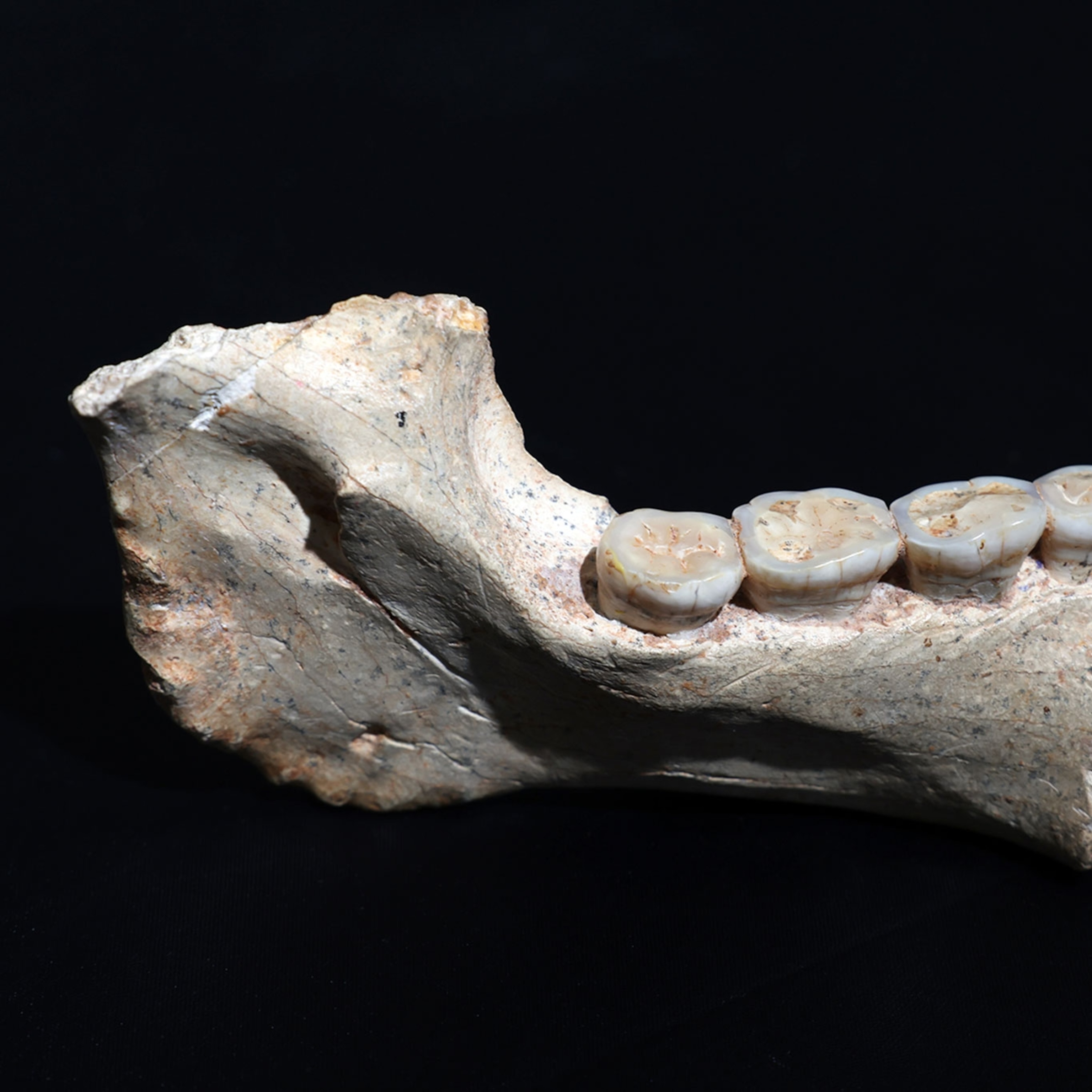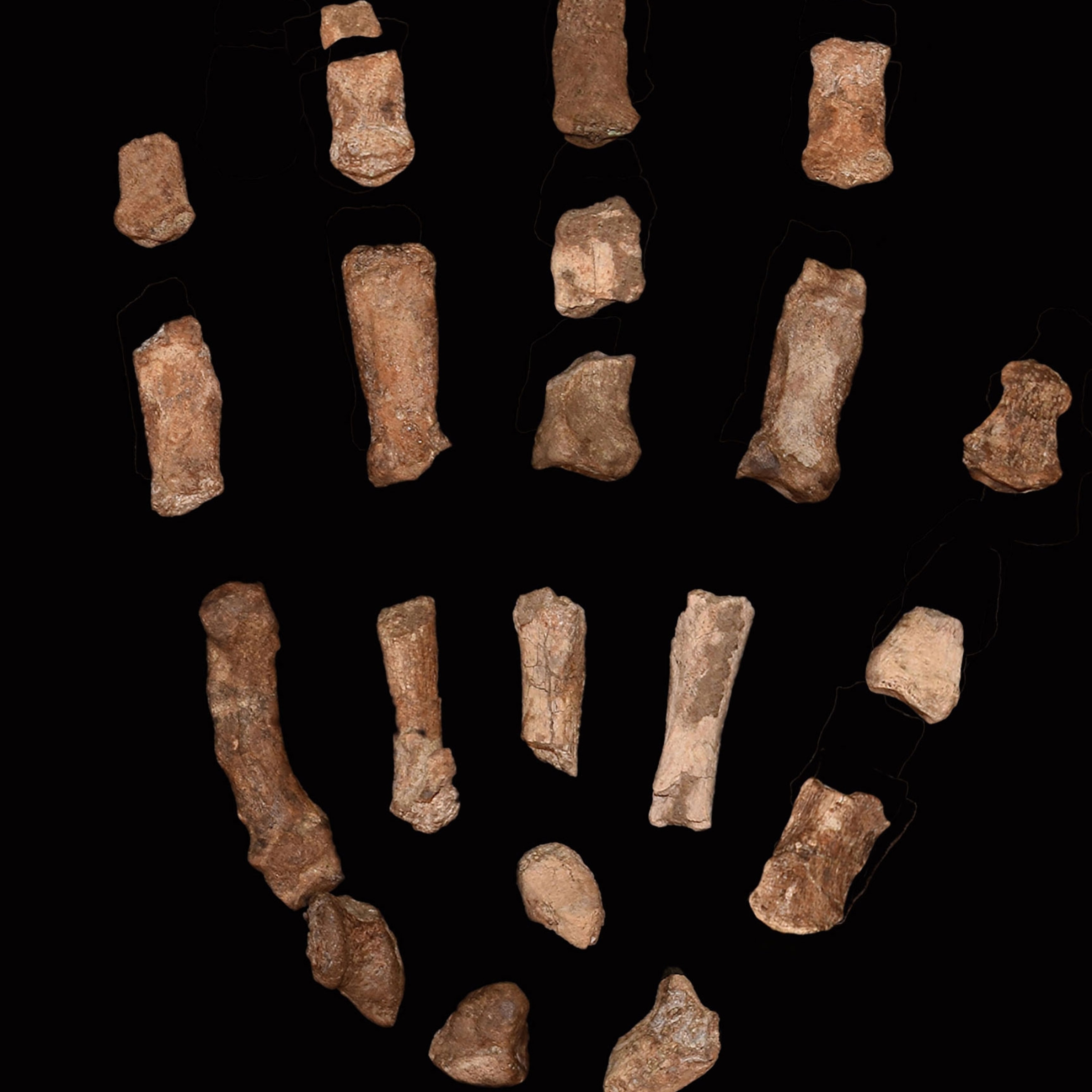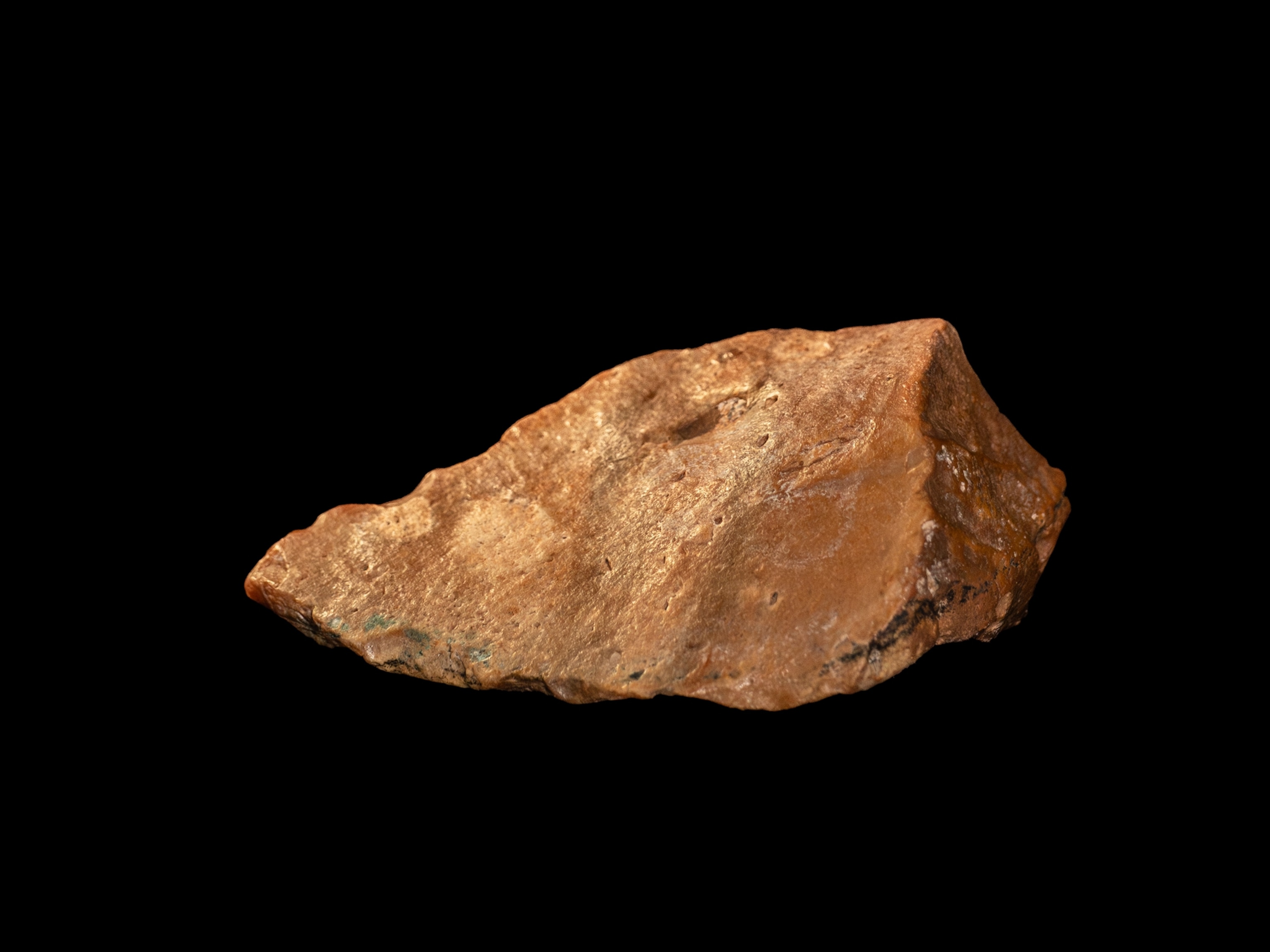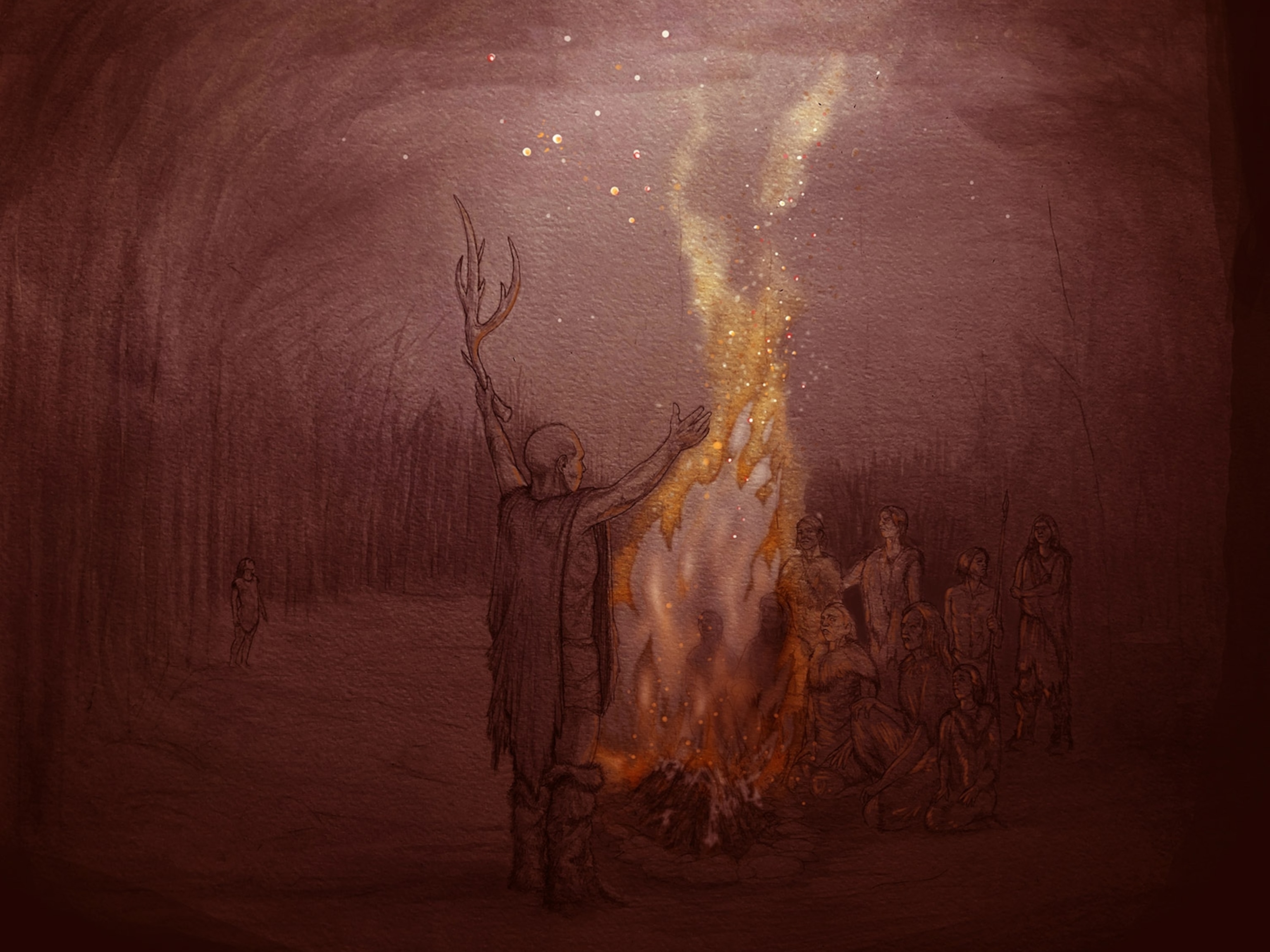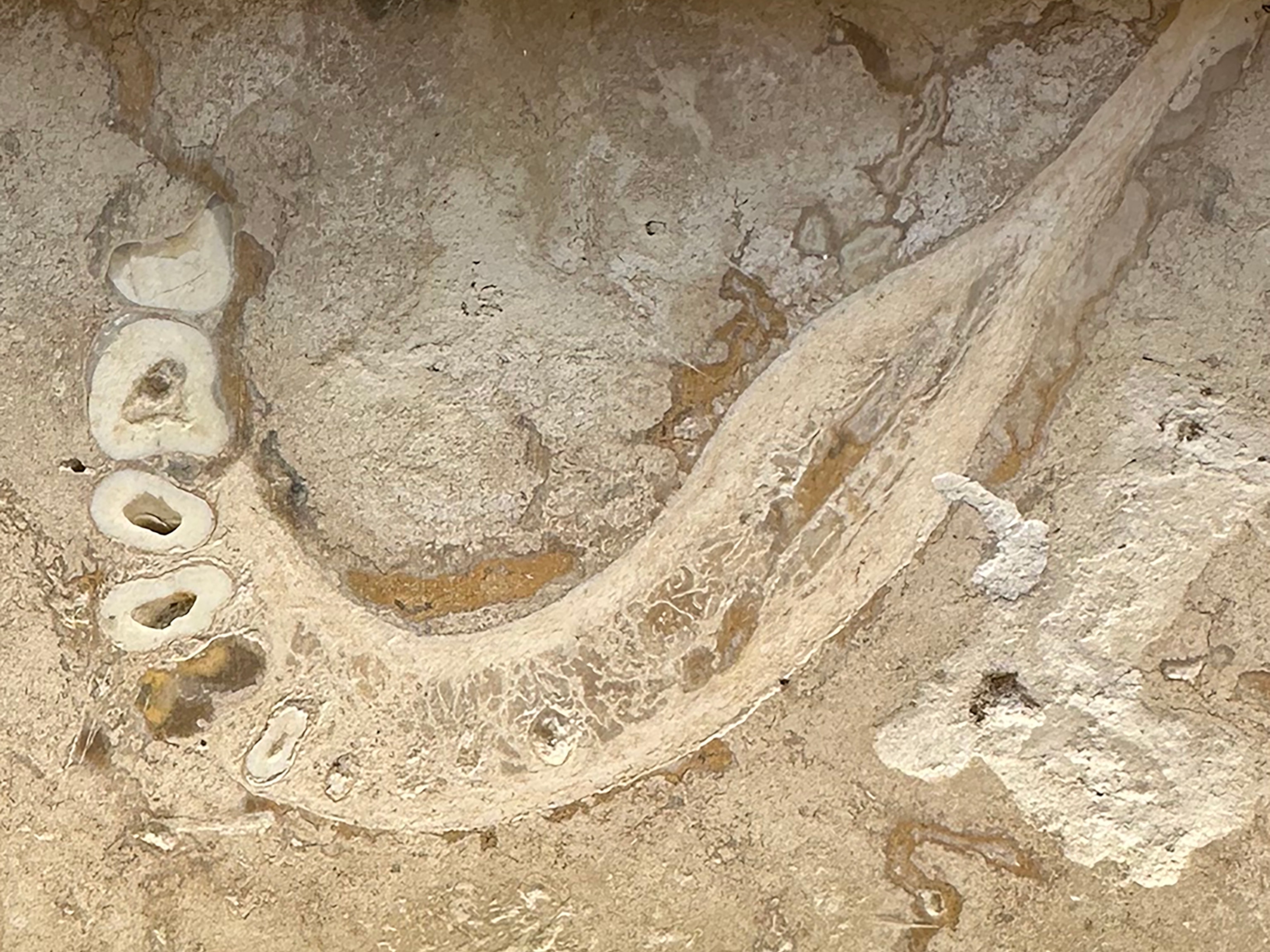New Human Ancestor Elicits Awe—and Many Questions
Fossils of Homo naledi are an amazing discovery, experts say, but their scientific value remains in limbo until we know how old they are.
Scientists reacted with a mix of awe and exasperation to the news Thursday of the discovery of fossils in South Africa that are said to define a new species of human ancestor, Homo naledi. The awe was inspired mostly by the sheer number of fossils—more than 1,500 bones, all of them from a remote chamber in the cave system called Rising Star, 30 miles northwest of Johannesburg.
“It’s a stunning collection of bones, unlike any we’ve seen before,” said Carol Ward, a paleoanthropologist at the School of Medicine at the University of Missouri.
Like other scientists, however, Ward tempered her enthusiasm with frustration at the discovery team’s decision to publish before more information could be gathered—most importantly, on the age of the bones.
Homo naledi sports a bizarre mixture of primitive and modern traits. It has a tiny ape-like brain perched on a body proportioned much like a small modern human; it has ape-like shoulders and torso, curved fingers for climbing trees—and a remarkably human foot. The mix hints at a species close to the origin of the genus Homo, between two million and three million years ago.
But dating fossils solely by what they look like is a highly risky business. Traits from a primitive ancestor can be retained in a skeleton alongside ones that have evolved toward a more modern form. The fossils could be much younger or—less likely—much older than their morphology suggests.
In East Africa, datable volcanic ash layers provide “time stamps” that have allowed the age of famous hominin finds, such as the 3.2-million-year-old Lucy skeleton, to be determined precisely. In contrast, South African cave finds are notoriously difficult to place in time. Often the age is estimated from the types of extinct animal bones found in the same deposits. But aside from an owl bone and a few rodent teeth, no other animal bones were found in the cave chamber that yielded the Homo naledi fossils.
Until the fossils’ age is known, some scientists say, their real value to science hangs in limbo.
“Without a date, these fossils are more curiosities than game-changers,” said William Jungers, a paleontologist at the State University of New York, Stony Brook. “Where they fit in the family tree will be influenced by their age—they're a twig, looking for a trunk.”
Some prominent researchers even question the conclusion that the fossils represent a new species. “From what is presented here, the [fossils] belong to a primitive Homo erectus, a species named in the 1800s,” Tim White of the University of California at Berkeley told the Associated Press.
Was Rising Star A Cemetery?
The paper describing the fossils was published in the journal eLife by a team led by Lee Berger, a paleoanthropologist at the University of Witwatersrand and a National Geographic Explorer in Residence. In an accompanying article, Chris Stringer of the Natural History Museum in London also questioned the team’s decision to publish their results before at least some attempt could be made to estimate the fossils’ age. Radiocarbon dating, for instance, might at least determine whether they’re older than 50,000 years, where the effectiveness of radiocarbon dating ends.
“We’d like to know, as much as anybody would, how old the fossils are,” said John Hawks, of the University of Wisconsin, who co-directed the analysis of the fossils with Berger. But Hawks points out that, in the absence of associated animal bones, the only material datable by radiocarbon or some other techniques is the hominin bones themselves—which would be damaged in the process of dating them. “We thought we couldn’t undertake anything that could possibly destroy material until we published its description.”
The absence of other animal bones in the chamber with the hominin fossils suggests that the chamber was never easily accessible from the surface. It can only be reached now through a narrow chute, after traversing a twisting 100-yard passage in the dark.
That raises the question of how the skeletons, representing at least 15 individuals, got into the cave in the first place—and the answer proposed by Berger’s team has drawn a lot of skepticism.
Berger and his colleagues suggest that the corpses of Homo naledi were deliberately dropped down the chute into the chamber by other Homo naledi. The hominins would have had to carry the dead through that long, dark passage, and almost surely would have had to use torches or primitive lamps of some kind to light their way—complex behavior that many scientists find unlikely in a creature with a brain no larger than a gorilla’s.
I imagine many paleoanthropologists are pea-green with envy.Anthropologist Donald Johanson
“My guess is there’s another explanation,” said Bernard Wood, an expert in early Homo at George Washington University. “We just haven’t found it.”
“Mortuary ‘rituals’ wherein pinheads regularly dispose of corpses makes a better headline than ‘we don't yet have a clue,’ says Jungers.
One thing everyone agrees on: Many more clues remain to be found in the cave. The majority of the bones excavated so far came from a single patch of sediment of around one square meter (11 square feet), and initial investigation suggests hundreds of bones—maybe thousands—remain. And while there are no immediate plans to resume excavation, the team is actively pursuing the matter of the fossils’ age, employing several experimental techniques.
In the meantime, scientists will puzzle over the meaning of what, by the sheer number of bones, is one of the most astonishing fossil discoveries ever made.
“I imagine many paleoanthropologists are pea-green with envy,” says Donald Johanson of the Institute for Human Origins. Johanson knows a thing or two about the envy of peers: He found the Lucy skeleton.
Follow Jamie Shreeve on Twitter.

